Pancreatitis is an inflammation of the pancreas, and it shouldn’t be ignored as it often can be life-threatening. If you feel pain in your upper or upper-left abdomen, often feel nauseous or even vomit, you might be suffering from pancreatitis.
There are two main types of pancreatitis: acute (short-term) and chronic (long-term).
Acute pancreatitis happens when digestive enzymes produced and stored inside the pancreas become activated. Those enzymes are extremely dangerous as they dissolve anything you eat. Usually, they would have become active inside your digestive tract, but in acute pancreatitis, they activate in the wrong place and start to digest everything around them.
There is mild and severe acute pancreatitis. In the mild type, pancreatic cells primarily respond to the enzymes with inflammation. In the severe type, they react with necrosis (death of the cells), which is far worse because when pancreatic cells die, they release those digestive enzymes and begin to damage other organs.
Chronic pancreatitis is a long-term inflammatory process that leads to irreversible damage to the pancreas. It can be caused by acute pancreatitis or by many years of alcohol abuse. It is one of the most common![]() causes of pancreatic cancer.
causes of pancreatic cancer.
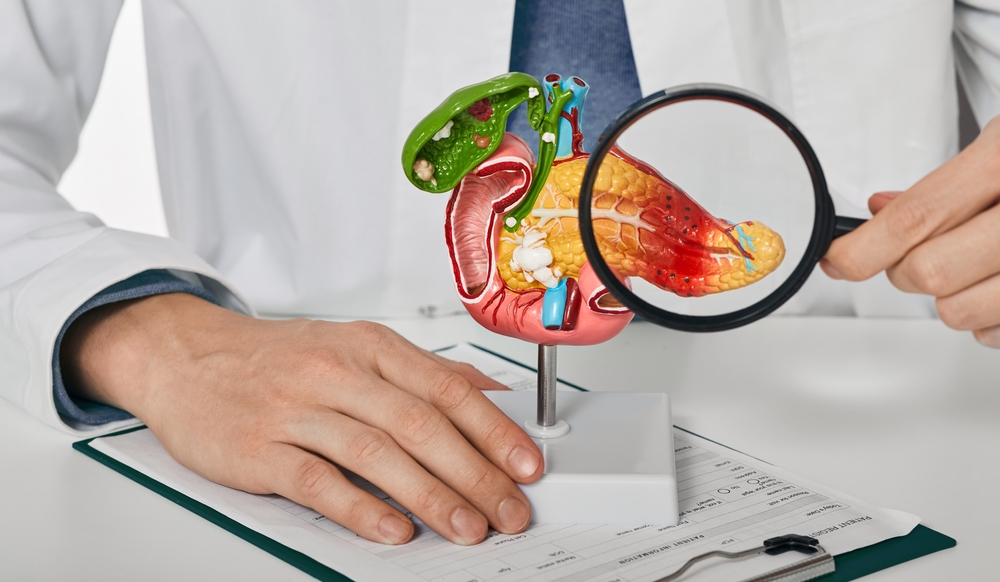
The pear-shaped, long, spongy pancreas is located just behind your stomach. Although it may be inconspicuous, it is vital to your survival. We can divide its functions into two categories:
The pancreas produces amylase (for carbs digestion), lipase (for fat digestion), trypsin, and chymotrypsin (to break down proteins). When you eat, these enzymes flow out of the pancreas through a system of ducts that culminate into the main pancreatic duct, where they combine into pancreatic juice.
With bile (to emulsify the lipids) from your liver, this juice is excreted to your small intestine and begins breaking down the food you eat into its most essential ingredients so that your organism may use them to build parts of your body.
The pancreas partially consists of a particular kind called islet cells (islets of Langerhans). These cells aim to regulate your blood sugar level by increasing or decreasing it. They do so by producing two essential hormones.
When you are hungry, alpha islet cells produce glucagon, which travels through the blood to the liver, where your body stores sugar and releases it into your bloodstream to provide energy until your next meal.
After a meal, your blood sugar skyrockets thanks to the carbohydrates you digested. Carbohydrates are a highly complex form of sugar that needs to be broken down into simpler forms before your body can use it as an energy source). However, high blood sugar levels can damage various organs, so in response to that, your beta islet cells produce insulin after every meal.
Insulin tells your entire body that you just ate, and it’s time to stop using stored resources and start storing these new ones you just provided. The most important role here is the liver, which begins collecting all that sugar from your blood and saving it for later.
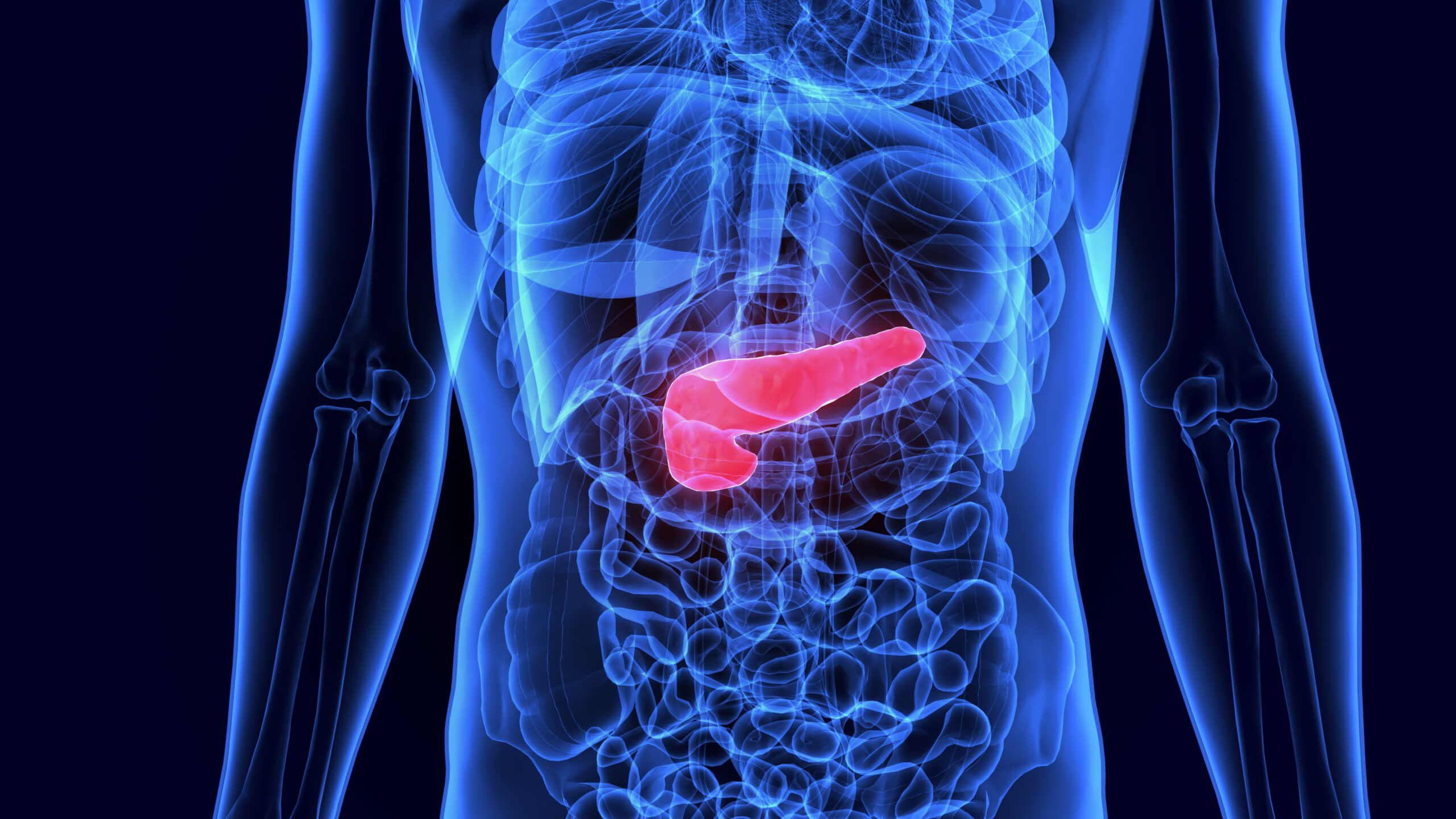
The symptoms of pancreatitis include:
Various factors can cause pancreatitis, the most common being drinking too much alcohol. Eating significant amounts of fatty foods and overeating in the first place can cause your pancreas to malfunction. Metabolic issues are not the only cause of pancreatitis. Sometimes, you can contract acute pancreatitis by physical injury to your abdomen, for example, a car accident.
Viruses such as the hepatitis B virus, mumps virus, herpes simplex virus, and varicella-zoster virus (VZV) are responsible for some cases of pancreatitis. Antiepileptic drugs, diuretics (water pills), or steroids can also cause this illness.
The rare cause of pancreatitis is hyperparathyroidism, a condition where your parathyroid gland releases too much parathyroid hormone into your bloodstream. If you have gallstones![]() or your bile duct is obstructed for any other reasons, you are also at risk of contracting pancreatitis.
or your bile duct is obstructed for any other reasons, you are also at risk of contracting pancreatitis.
Annually, from 600 to 700 per 100,000![]() US citizens acquire acute pancreatitis, and 5 to 12 per 100,000
US citizens acquire acute pancreatitis, and 5 to 12 per 100,000![]() people start suffering from chronic pancreatitis, the prevalence of which is about 50/100,000.
people start suffering from chronic pancreatitis, the prevalence of which is about 50/100,000.
Acute pancreatitis is equally common among men and women, but chronic inflammation of the pancreas affects men more often, and that is attributed to men’s higher alcohol consumption.
The risk of contracting acute pancreatitis increases with age, but chronic disease is most common among middle-aged people. Age also changes the most common cause of pancreatitis. For middle-aged individuals, alcohol is the leading cause, and the older you get, the higher the chance of gallstones being the cause of pancreatitis in your body.
The risk of developing pancreas inflammation is 2-3 times![]() higher for Black people than it is for White people. Black people are also more susceptible to life-threatening complications of pancreatitis.
higher for Black people than it is for White people. Black people are also more susceptible to life-threatening complications of pancreatitis.
To avoid pancreatic diseases, it is necessary to give up or at least limit to the minimum the use of alcohol and cigarettes. A healthy diet also plays a massive role in preventing pancreatitis, so remember not to overeat, keep fatty food levels in your diet at a minimum, and limit coffee, tea, and white bread consumption.
If you are overweight, it is advised to increase your physical activity, as a high BMI increases the risk of contracting pancreatitis, increases its severity, and even increases your chances of dying from severe acute pancreatitis.
In patients suffering frequently from biliary colic, doctors often decide to remove their gallbladders as gallstones can induce pancreatitis attacks. You should also be wary and always follow your doctor’s instructions when using antiepileptic drugs, diuretics, and steroids to avoid any damage to your pancreas.
It is important to remember that sometimes you can’t prevent it, as even 30%![]() of cases are idiopathic, meaning there is no apparent reason for it.
of cases are idiopathic, meaning there is no apparent reason for it.
Early detection of chronic pancreatitis is challenging![]() and almost impossible in some cases. The later the stage of chronic pancreas inflammation, the easier for a doctor to diagnose it.
and almost impossible in some cases. The later the stage of chronic pancreas inflammation, the easier for a doctor to diagnose it.
First, the doctor will take your history to check if your symptoms resemble those of ongoing pancreatic disorder and to evaluate how high your chances of developing pancreatitis. The physician will want you to tell them about your current complaints, the most important being fever and abdominal pain. Then, they will ask questions like “How is your diet?” or “How often do you eat fatty foods?” to determine if there are any metabolical risk factors for damaging your pancreas. They will also ask about your viral infections, injuries to the abdominal area, alcohol consumption, drugs you are taking, and medical conditions you might have suffered from in the past, like gallstones or other cases of pancreatitis.
Next, the doctor will perform a physical examination. For that, you will have to lie down on your back with your shirt pulled up so that they can see and touch your belly. They will look at your abdomen to check for any skin discoloration, as bruising on the sides of your stomach or belly button may indicate ongoing acute pancreatitis. Then, the physician will use their stethoscope to listen to your bowel movements, and after that, they will touch your abdomen to see where it hurts and if it’s tender or swollen.
In the next step, if the doctor suspects that you are suffering from any pancreatic disorder, they will order blood tests and imagine tests such as:
The blood tests will show lipase and amylase levels (these are digestive enzymes), as when the pancreas is damaged by inflammation, they tend to spike up. Blood sugar levels should also be checked because without pancreatic hormones keeping them in check, they usually sharply rise.
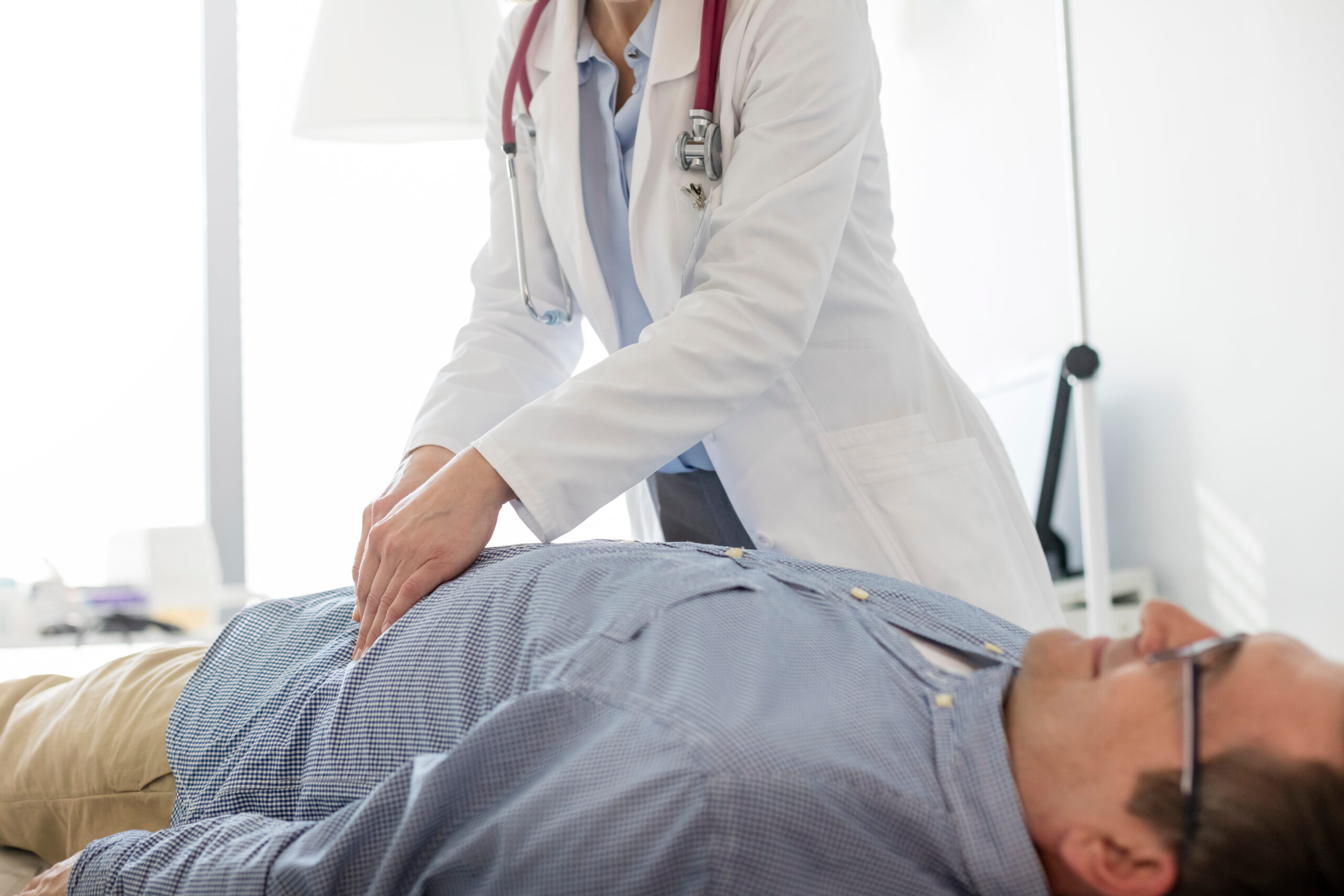
It’s an inflammation of the bile duct caused by bacteria![]() ascending from your small intestine. It usually presents with yellow skin discoloration, abdominal pain, and fever. It’s almost indistinguishable from pancreatitis without performing special tests.
ascending from your small intestine. It usually presents with yellow skin discoloration, abdominal pain, and fever. It’s almost indistinguishable from pancreatitis without performing special tests.
It does not cause any specific symptoms in the early stages, so it is usually diagnosed late![]() after spreading throughout your body. Presenting complaints in patients who have pancreatic cancer usually are abdominal pain, unexpected weight loss, and jaundice.
after spreading throughout your body. Presenting complaints in patients who have pancreatic cancer usually are abdominal pain, unexpected weight loss, and jaundice.
It is one of the most common medical conditions affecting your digestive tract. It doesn’t pose any threat to your health but still can have a significant impact on your everyday life, as its symptoms can be very frustrating to live with. It usually presents itself with abdominal pain, bloating, cramping, and either diarrhea or constipation. Unfortunately, there is currently no permanent cure for IBS, but some medications can help ease your symptoms. Usually, a well-balanced diet and physical activity can also improve your condition when suffering from IBS.
It’s usually benign and is most commonly detected only during routine blood tests. However, sometimes, it can imitate pancreatitis as it may not only cause abdominal pain but also show up in lab tests similarly to pancreas inflammation. Fortunately, treatment is most commonly not necessary.
Pseudocysts are sacks of fluid inside your pancreas that may cause bloating, abdominal pain, nausea, and indigestion. They are benign and usually require no treatment but sometimes pose a risk of rupture and need to be drained![]() by a surgeon. They may also become infected and, in that case, require antibiotics and surgical intervention.
by a surgeon. They may also become infected and, in that case, require antibiotics and surgical intervention.
Pancreatic cancer is the most severe complication of pancreatitis, as it is the fourth leading cause of death in the United States. Chemotherapy and radiation is usually a method of treatment, but the 5-year survival rate is approximately 5%![]() .
.
Pancreatic necrosis is also one of the more severe complications. In this condition, part of your pancreas dies and may become infected; in that case, surgical procedures to remove dead tissue might be required, as well as antibiotic treatment.
Acute pancreatitis treatment usually means a hospital stay to keep your dehydration in check. It is done by fluid administration either by mouth (if you can swallow) or by IV drip. You will probably also receive some pain medicine and be put on a low-fat diet.
In more severe cases, surgery may be needed![]() to manage your pancreatic disorder fully. It is of utmost importance that you stop drinking alcohol and smoking tobacco as it may not only cause acute pancreatitis to return but also cause chronic pancreatitis and later cause you to suffer from pancreatic cancer.
to manage your pancreatic disorder fully. It is of utmost importance that you stop drinking alcohol and smoking tobacco as it may not only cause acute pancreatitis to return but also cause chronic pancreatitis and later cause you to suffer from pancreatic cancer.
Chronic pancreatitis does not have specific treatment methods. It usually aims to alleviate pain and help with metabolic issues. You may receive enzyme pills if your pancreas no longer ensures proper digestion or vitamins if you start suffering from malabsorption.
Diabetes treatment may also be needed in the case of chronic pancreatitis as it leads to the destruction of cells responsible for blood sugar level control. In that case, your doctor will help you plan your diet and teach you how to check and control your blood sugar level with medications.
Some cases of pancreatitis cannot be prevented, but those that are caused by alcohol consumption and gallstones certainly can.
Alcohol abuse is responsible for about 30%![]() of cases of acute pancreas inflammation. To limit the risks of alcohol-related health problems, the CDC advises not to drink at all or to limit your drinking.
of cases of acute pancreas inflammation. To limit the risks of alcohol-related health problems, the CDC advises not to drink at all or to limit your drinking.
To prevent gallstones from forming, the most important thing you can do is to remember to include fruits and vegetables in your diet. Losing weight is usually also advised, as overweight people are more susceptible to developing gallstones.
If you experience symptoms of pancreatitis![]() , such as severe abdominal pain, nausea, vomiting, and fever, you should see your GP immediately. Your doctor will examine you, and if the inflammation of the pancreas is confirmed, you will probably be admitted to the hospital.
, such as severe abdominal pain, nausea, vomiting, and fever, you should see your GP immediately. Your doctor will examine you, and if the inflammation of the pancreas is confirmed, you will probably be admitted to the hospital.
Table of Contents
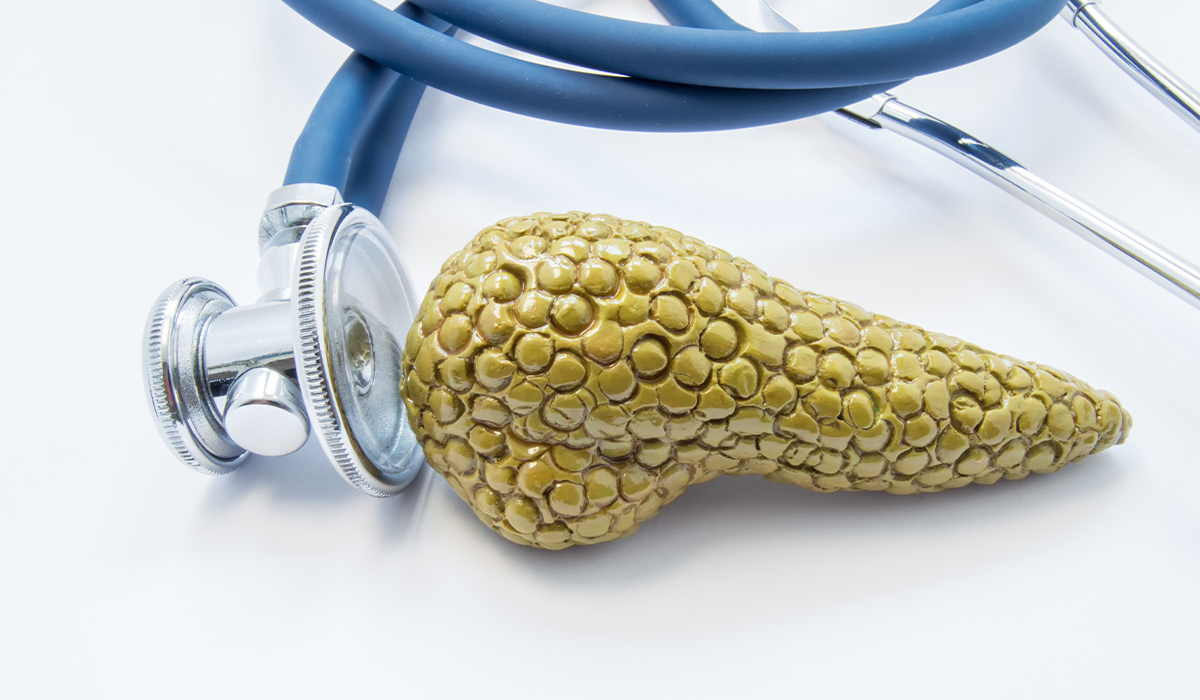
The first symptoms of pancreatic cancer are nonspecific, so it is difficult to make a quick diagnosis. Learn about pancreatic… read more »
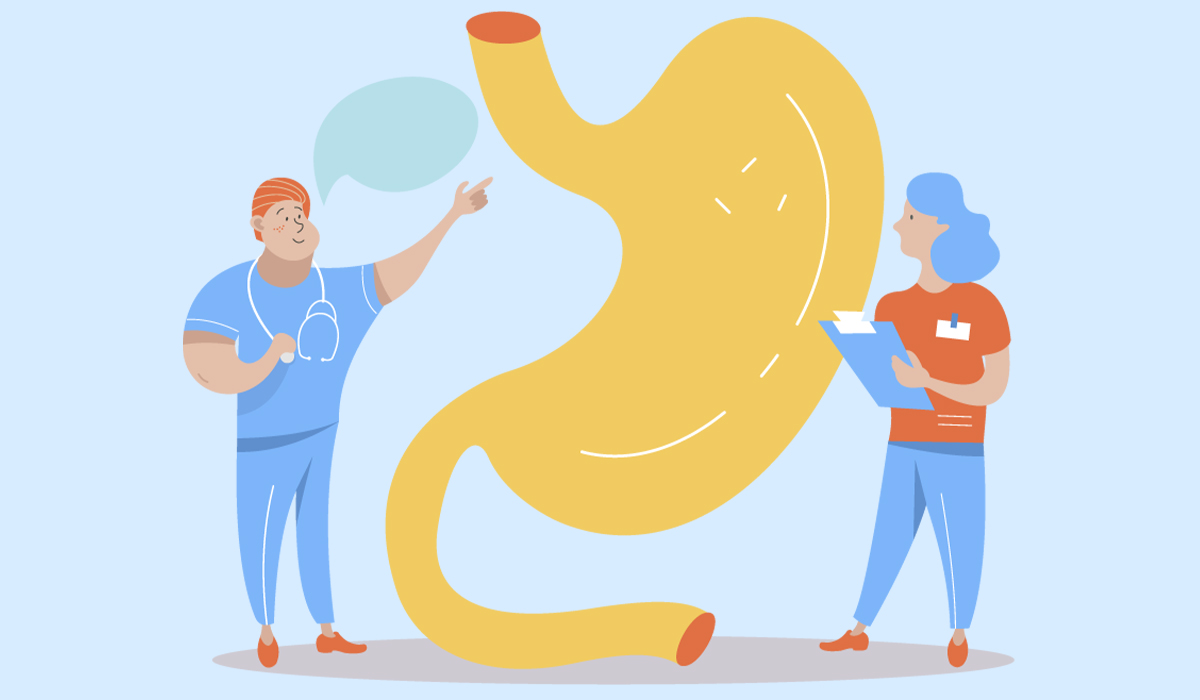
A gastroenterologist deals with the diagnosis and treatment of diseases of the human digestive system. What does a visit to… read more »
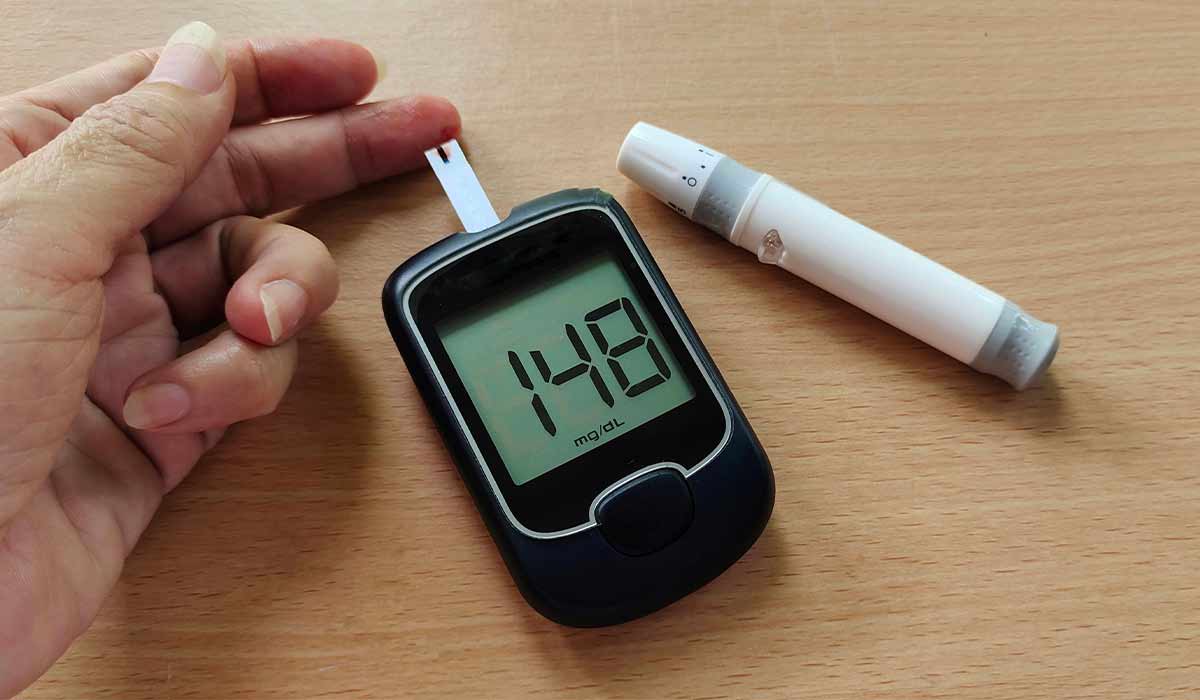
When blood glucose levels are too high, it leads to a hyperglycemia. Discover effective ways to reduce your sugar levels… read more »
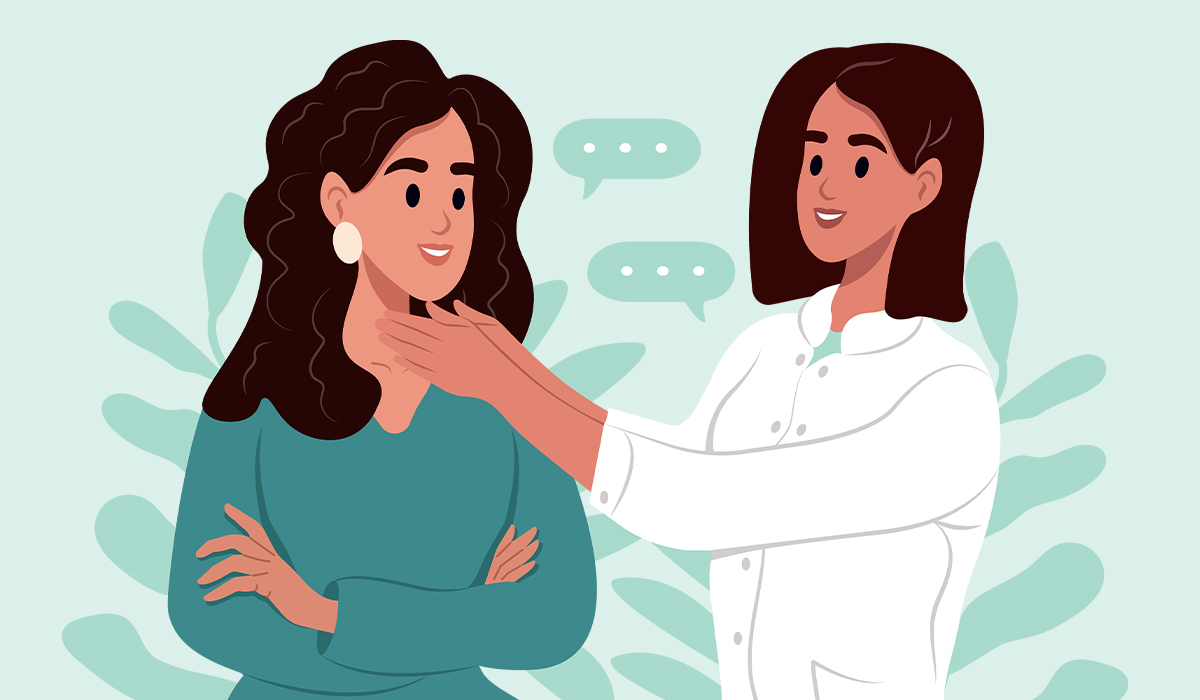
An endocrinologist is a doctor who deals with the organs that secrete hormones. Learn about diseases that are related to… read more »
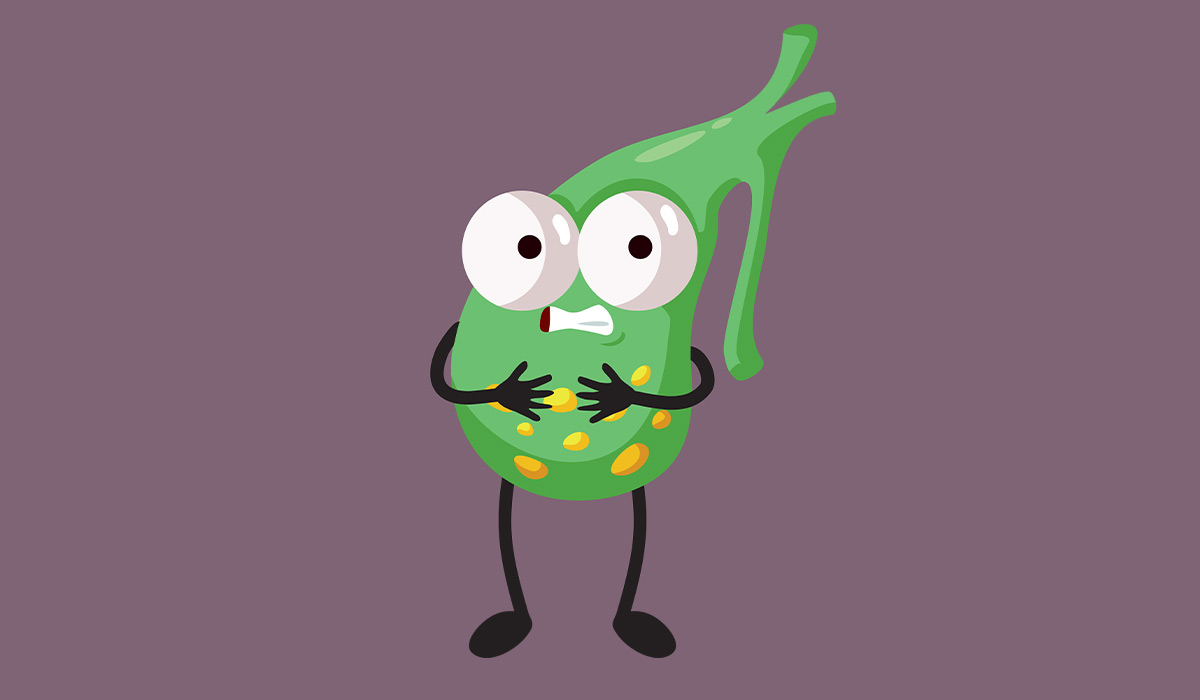
Gallbladder removal is necessary in some cases. Learn about common symptoms of bile duct problems, indications and contraindications to surgery. read more »
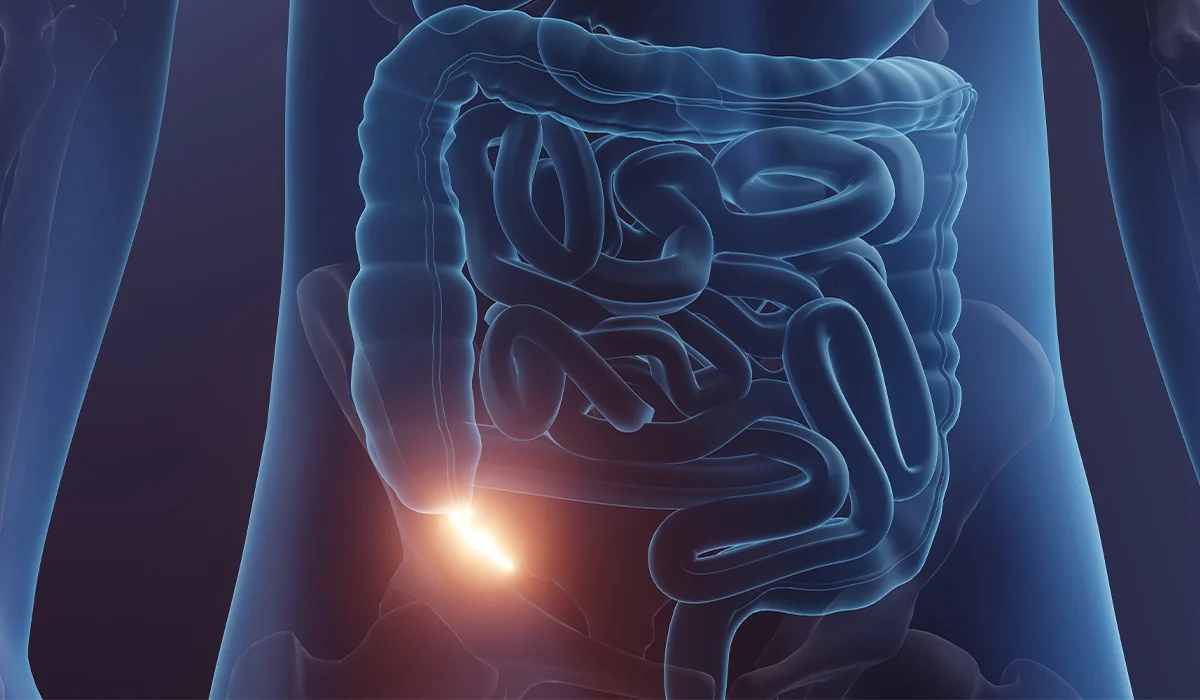
Appendicitis has various forms. Most often it appears as an acute inflammation requiring immediate medical intervention. Learn the most important… read more »
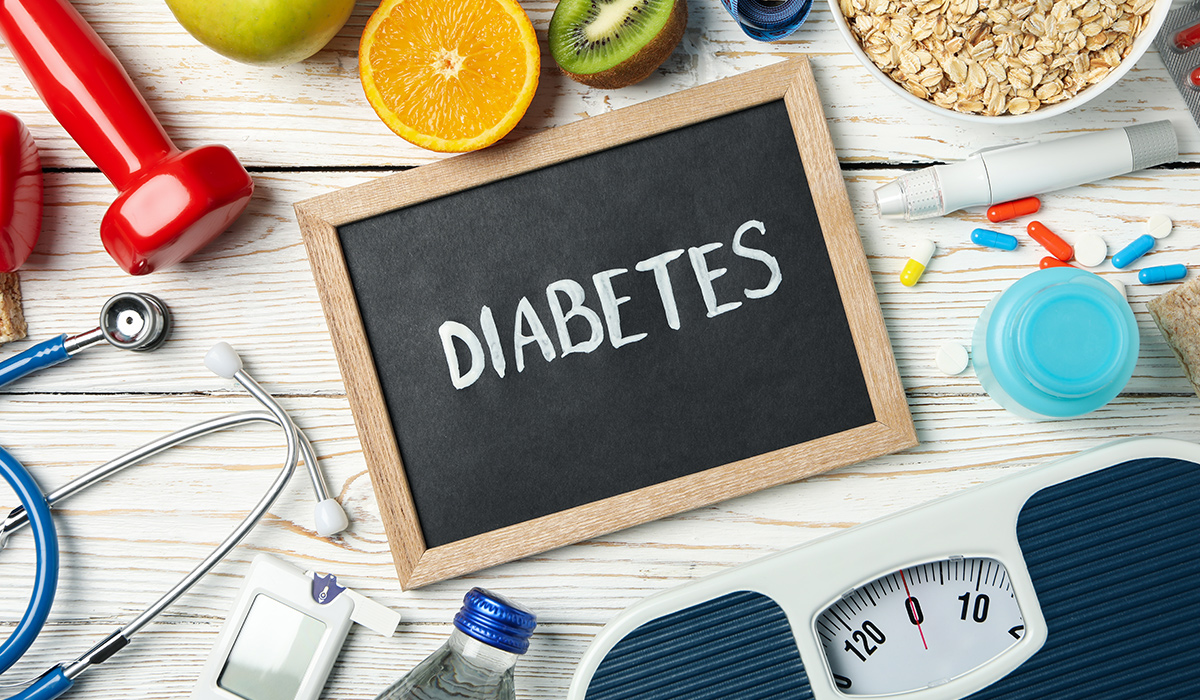
Diabetes is a disease involving elevated blood glucose levels. What are the causes of diabetes? How can it be treated?… read more »

Mumps is a contagious viral illness that typically affects children. Its most characteristic symptom is swollen salivary glands. Mumps can… read more »
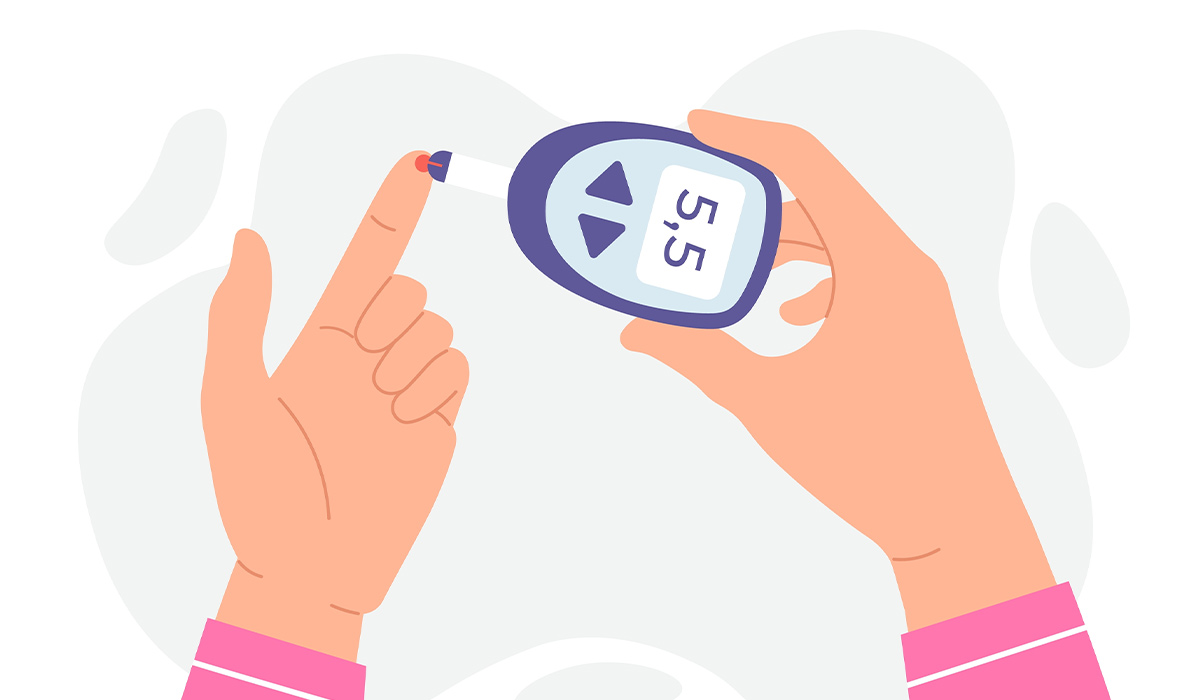
Normal blood glucose concentration is an important determinant of our health. Learn what are the symptoms of too high or… read more »